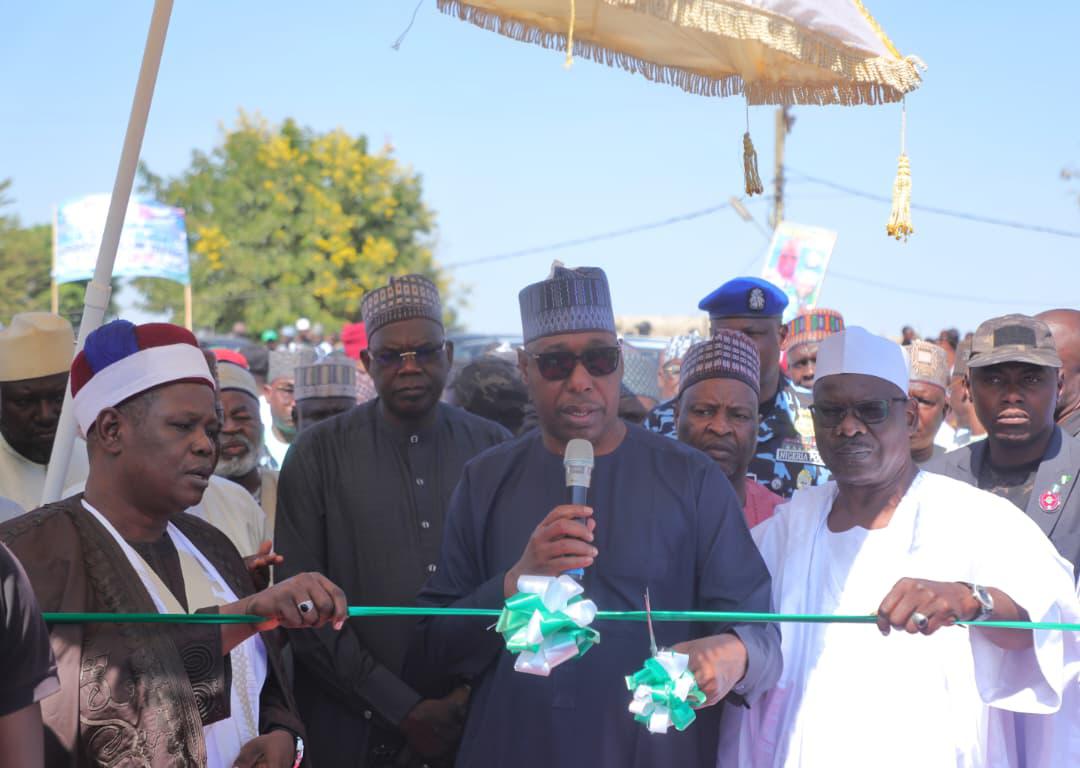The Non-Academic Staff Union of Educational and Associated Institutions (NASU) and other university-based unions will continue to engage in industrial action to protect their members’ interests and foster a conducive learning environment.
The General Secretary of the union, Peter Adeyemi, who stated this on Wednesday in Abuja at the National Executive Council (NEC) meeting, insisted that the continuous agitations by the unions have led to improved funding and infrastructural development in the nation’s universities.
Adeyemi maintained that while the government and employers of labour are recalcitrant on ‘no work, no pay’, no attempt has been made to criminalise ‘no pay, no work’ to balance the equation.
Adeyemi was referring to Section 42(1)(a) of the Trade Disputes Act, popularly known as the “No Work, No Pay” policy, which withdraws financial payment whenever workers embark on industrial action.
The NASU scribe declared that implementing the section is a deliberate attempt to intimidate, silence, and criminalise legitimate trade union actions.
He explained that strikes are painful, last-resort measures provoked by the consistent failures, neglect, and insincerity of government officials in honouring agreements freely entered into with unions.
At the International Labour Organisation (ILO), Adeyemi noted that strikes have never been declared a crime, stating that they remain a legitimate instrument of industrial relations.
“The same officials who shout ‘no work, no pay’ are often silent when workers have gone for months without pay in clear violation of Section 15 of the Labour Act CAP 198, which mandates that wages must be paid at regular intervals not exceeding one month. When workers work and are not paid, that too is an offence, yet no one threatens ‘no pay, no work.’
“It is high time this double standard and insincerity are addressed. NASU will continue to stand firm, guided by the law, and committed to justice, fairness, and dignity for all workers,” he said.
In his address to the NEC meeting, President of NASU, Dr Hassan Makolo, called on the Federal and state governments to implement a living wage policy that reflects current economic realities, while also demanding urgent measures to secure Nigeria’s educational institutions against bandit attacks and abductions.
He said the condition of the Nigerian worker today mirrors the broader crisis of the nation, marked by low wages, high inflation, and deepening poverty.
“Our wages no longer reflect the realities of today’s economy. Inflation has wiped out the value of salaries, leaving many workers unable to meet basic needs. Governments must implement a living wage policy that adjusts periodically to inflation and cost-of-living indices, ensuring that workers can live with dignity,” he declared.
The NASU president reiterated that adequate funding for education remains central to the Union’s advocacy, stressing that it is not merely about improving workers’ welfare but about safeguarding Nigeria’s future.
He lamented that the security of schools has been treated as an afterthought, warning that the continuing bandit attacks and abductions in schools have created ‘zones of anxiety rather than learning’.
According to UNICEF, around 11,536 schools were closed as of December 2020 due to abductions and security issues in Nigeria. Other reports also indicate that in the northern-region states, over 615 schools remained closed owing to banditry and kidnapping. Additionally, in Katsina State, 52 schools were closed following bandit attacks between 2020 and 2025, while recently, 45 schools were shut in Kwara State due to bandit attacks.
Makolo added, “The tragedy of the Chibok girls must never be relegated to the past as if it were a closed chapter. It remains a painful reminder of the urgent need for Government accountability and decisive action to protect our children, our teachers, and our future,” he said.
Makolo announced progress in the renegotiation of Collective Bargaining Agreements (CBAs) for NASU members in Universities and Inter-University Centres, while urging the Government to commence similar processes for Polytechnics, Colleges of Education, Research, and Health institutions.
He condemned the creation of splinter unions and the illegal diversion of check-off dues by some managements to unregistered associations, describing such acts as attempts to weaken NASU’s lawful jurisdiction under the Trade Unions Act.
“NASU remains fully aware of these actions and is unwavering in its resolve to defend its lawful jurisdiction. We are taking every legitimate and strategic step to ensure strict compliance with Nigeria’s labour laws,” he stated.
The union leader decried the rising cost of living, worsening inflation, unemployment, and casualisation of labour, describing them as tools of exploitation that erode the dignity of work.
He called on the government to implement a living wage policy linked to inflation, enforce prompt payment of salaries and allowances, strengthen the National Health Insurance Scheme (NHIS) for workers, reform or scrap the National Housing Fund (NHF) to make affordable housing accessible, prioritise job creation through SME support, vocational training, and labour-intensive industries and tackle insecurity through technology, intelligence, anti-corruption reforms, and youth employment.
The NASU President also highlighted other systemic issues, including weak collective bargaining, policy inconsistency, corruption, poor infrastructure, and brain drain, which he said continue to undermine productivity and worker morale.






